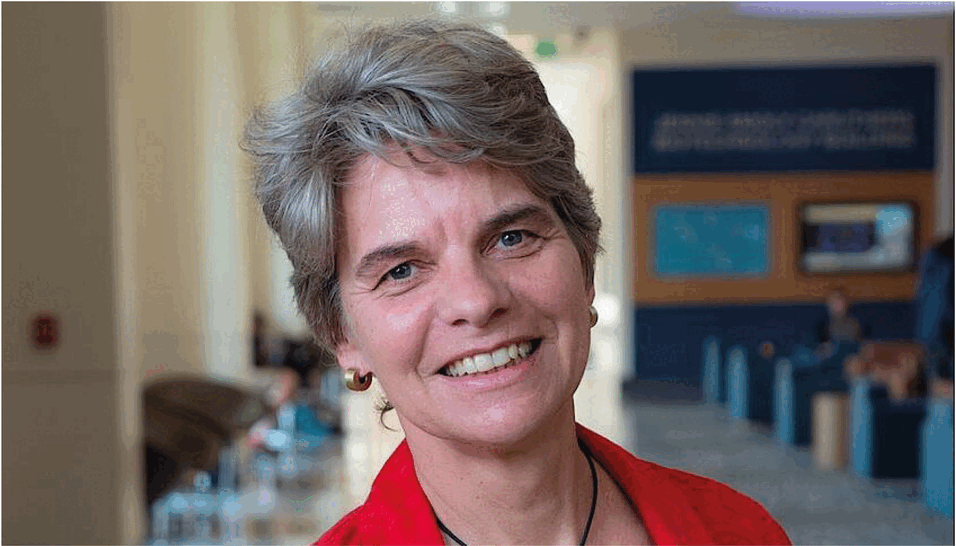6th Hans Tuppy Lecture
"How it all began: Dynamic genome organization in humans, ancient bacteria, and giant viruses"
KAROLIN LUGER, University of Colorado at Boulder and Howard Hughes Medical Institute.
25 November 2021, 7:00 P.M.
Link to the live stream: www.oeaw.ac.at/veranstaltungen/live
Abstract:
How do you pack 46 human hairs, each 350 meters in length, into a golf ball? How would you then faithfully split each hair into two, without removing it from its confinement, and without creating knots or tangles? And how could you possibly find seventeen different words in the equivalent of ~ 40 phone books worth of text that is written on each hair? This ‘mission impossible’ is performed in every single one of the trillions of cells in your body, all the time, and entirely without our input.
The entire blueprint for each cell in the human body is encoded on DNA, an incredibly long and impossibly thin molecule. Small segments of DNA are tightly wrapped into nucleoprotein complexes called nucleosomes, like a string of beads tossed into a bowl. This profoundly affects access to the information stored in the DNA, and thus determines every cell’s identity and function. This organization also impacts the faithful duplication of the entire genome during cell division, and the cell’s endless and vital efforts to repair potentially fatal and disease-causing breaks and tangles.
Over the past 25 years, my lab has been studying the molecular details of DNA organization in humans. We are investigating its structure and study the mechanics of the elaborate and complicated machinery that decodes the information. We also study the evolutionary origins of DNA packaging principles, which must have been a very early and essential acquisition that enabled the emergence of all multi-cellular life. To this end, we study genome packaging in ancient ‘archaebacteria’ and in giant viruses.
Karolin Luger
Karolin Luger is an Austrian-American biochemist known for her work withnucleosomes and for the discovery of the three-dimensional structure ofchromatin. She is the Jennie-Smoly-Caruthers Endowed Chair of Biochemistryat the University of Colorado, Boulder and an investigator at the HowardHughes Medical Institute. Luger received the State of Vorarlberg’s State SciencePrize in 2007 and is a member of the American Academy of Arts and Sciencessince 2017. In 2018, she was elected to the National Academy of Sciences andbecame a member of the European Molecular Biology Organization.

